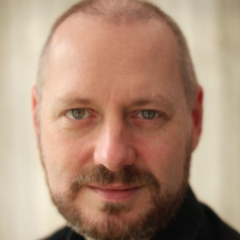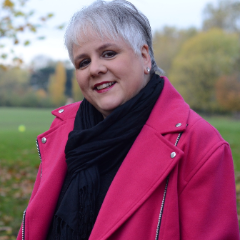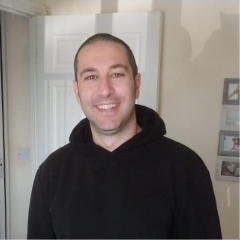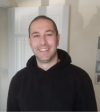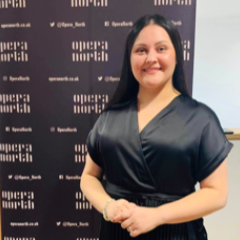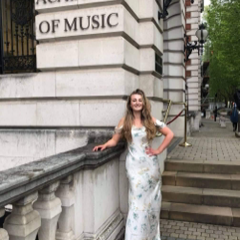What qualifications do opera singing teachers in Newark typically hold?
Opera singing teachers in Newark often possess a range of qualifications that reflect their expertise and dedication to the art of opera. Many of these educators have studied at prestigious institutions such as the Royal Academy of Music, where they receive rigorous training in vocal performance and music theory. For instance, Colin Reed, a renowned opera singing tutor in Newark, has honed his skills through extensive classical vocal technique training and has performed with professional opera companies across the UK. In addition to formal education, many teachers have practical experience performing in operas and concerts both locally and internationally. This blend of academic credentials and real-world experience enables them to provide comprehensive and insightful instruction to their students. Moreover, some tutors, like Elena-Roxana H., have achieved advanced degrees in operatic singing and stage performance, further enhancing their teaching capabilities. Overall, the qualifications of opera singing teachers in Newark ensure that students receive high-quality instruction, whether they are beginners or seasoned performers looking to refine their craft.
What makes Newark an ideal location for learning opera singing?
Newark offers a unique blend of cultural heritage and educational opportunities, making it an ideal location for learning opera singing. Known for its rich history and vibrant arts scene, Newark provides a supportive environment for aspiring opera singers. The town is home to a number of music schools and academies that offer specialised training in opera singing, such as the University of Lincoln, where experienced instructors like Colin Reed provide expert tuition. Additionally, Newark's proximity to major cultural centres like Nottingham and Lincoln means students have access to a wide array of performances and workshops, enhancing their learning experience. The local opera community is active and welcoming, with events and recitals frequently held in venues around the town, providing students with ample opportunities to perform and gain confidence. Moreover, Newark's scenic beauty and historical landmarks, such as Newark Castle and the Newark Air Museum, offer inspiring settings for rehearsals and performances. These factors combine to create a nurturing atmosphere for opera students to develop their skills and pursue their passion for music.
How can opera singing lessons in Newark improve vocal skills?
Opera singing lessons in Newark are designed to significantly enhance vocal skills through a comprehensive approach that combines technique, performance, and theory. Experienced tutors like Colin Reed focus on developing a strong foundation in classical vocal techniques, which are essential for operatic singing. Lessons often include exercises to improve breath control, vocal range, and resonance, enabling students to produce a powerful and expressive sound. Additionally, students are taught the importance of diction and pronunciation, often incorporating language training in French, Italian, and German, which are critical for performing opera repertoire. Newark's opera singing teachers also emphasise the development of stage presence and character interpretation, helping students convey emotion and engage with their audience effectively. Practical performance opportunities are integral to the learning process, allowing students to apply their skills in real-world settings. By receiving personalised feedback and guidance, students can identify areas for improvement and track their progress, ultimately leading to a more confident and polished vocal performance.
What is the average cost of opera singing lessons in Newark?
The cost of opera singing lessons in Newark can vary depending on factors such as the tutor's experience, the lesson format, and the duration of each session. On average, students can expect to pay between £17 and £75 per hour for opera singing lessons. For instance, Colin Reed offers lessons starting from £17, while more experienced tutors with extensive professional backgrounds may charge higher rates. Some instructors, like Carlo A. in Manchester, offer the first lesson free, providing an opportunity for students to assess the teaching style and compatibility before committing financially. Lessons can be conducted face-to-face or online, with the latter sometimes offering more flexibility and potentially lower costs due to the absence of travel expenses. It's important for students to consider their budget and the level of instruction they seek when selecting a tutor. Additionally, some tutors offer packages or discounts for bulk lesson bookings, which can make opera singing lessons more affordable in the long run.
Are there any notable opera performances or events in Newark?
Newark hosts a variety of opera performances and events that attract both locals and visitors, making it a vibrant hub for opera enthusiasts. The town's rich cultural scene is highlighted by events held at venues such as the Palace Theatre, which regularly features opera performances and concerts. These events provide an excellent opportunity for aspiring singers to experience professional opera and gain inspiration. Additionally, Newark's proximity to larger cities like Nottingham means that residents have easy access to major opera productions and festivals, such as the Nottingham Theatre Royal's annual opera season. Local music schools and academies often organise recitals and workshops, allowing students to showcase their talents and learn from experienced performers. These events not only enrich the community's cultural landscape but also offer valuable networking opportunities for budding opera singers. By participating in or attending these performances, students can immerse themselves in the world of opera, enhancing their understanding and appreciation of this timeless art form.
What language skills are beneficial for opera singers in Newark?
For opera singers in Newark, language skills play a crucial role in their ability to perform a diverse repertoire and connect with international audiences. Proficiency in languages such as Italian, French, and German is particularly beneficial, as many operas are composed in these languages. Understanding the nuances of pronunciation and diction allows singers to deliver accurate and compelling performances. Tutors in Newark, like Colin Reed, often incorporate language training into their lessons, helping students master the pronunciation and interpretation of foreign-language operatic works. Additionally, knowledge of these languages enhances a singer's ability to study original scores and librettos, offering deeper insights into the characters and stories they portray. Beyond operatic singing, language skills broaden a singer's career opportunities, enabling them to participate in global competitions and collaborations. For those interested in expanding their linguistic abilities, Newark's educational resources offer courses in various languages, further supporting the development of well-rounded and versatile opera singers.
